[Editor’s note: The following statements and pictures are part of ongoing research on the Syrian refugee population conducted by Rochelle Davis, Associate Professor at Georgetown University and a team of researchers. Click here to read an article published in the summer of 2013 by Rochelle Davis and Abbie Taylor which provides greater context and background on the refugee crisis in Jordan and Lebanon ]
Text by Rochelle Davis and Abbie Taylor.
Photographs by Andrew Farrand and Abbie Taylor.
Editing and translation assistance by Louie al-Hashimi, Hussam al-Joulani, Grace Benton, Emma Murphy, and Nicholas Griffin. Accomplished with appreciation for the work of the refugee research teams in Jordan and Lebanon and to the refugees themselves for working with us.
Almost forty percent of people in Syria have now been displaced from their homes. In the last fifteen months, more than two million Syrians have crossed the borders of their country to take refuge in Turkey, Iraq, Jordan, and Syria. Some have continued on–Bulgaria is the newest host country–and those who fled to Egypt have found more instability and diminishing options as that country faces its own internal conflicts. Others have endured arduous journeys to get to European countries and risking their lives on the Mediterranean Sea.
In the course of interviews this summer with those displaced by violence and war, we asked people from Syria who had fled into Jordan and Lebanon, “What do you miss most?” Below are some of their responses. Their words and the vivid images they conjure spur us to remember who people are, and what Syria means to them. They confront us with the brutal reality of what violence has done to them and their lives. They push us to understand how these people and millions of others like them will endure war, and how these memories will be part of enabling them to rebuild their lives. Their words allow readers physically distant from that violence, a window onto their displacement, and to be moved by what people express through answering this simple question. We have paired them with photographs of Syria taken in 2005 by Andrew Farrand while he was studying Arabic there, and photographs taken by Abbie Taylor in 2010.
What do you miss most?
“I miss my country, to smell the scent of my country. I only have my mom here. Three of my siblings are arrested in Syria. We don’t know anything about them. But the thing I am missing the most is to return to my country (Amen).”
twenty-seven-year-old woman from Homs; now living in Jordan
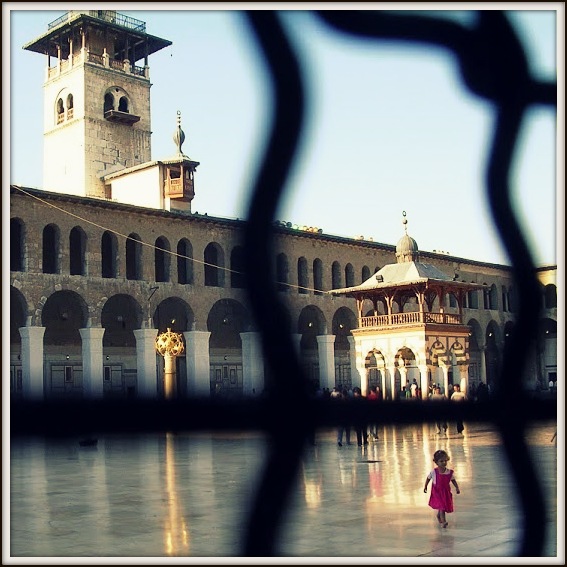
“I miss my dignity. And I miss my son because he’s alone there with those criminal monsters.”
sixty-eight-year-old man from Hama; now living in Jordan“The thing I miss most are the flowers on my balcony in Syria. And I miss the street of the house of my parents, my childhood house where I grew up. It has been destroyed by the regime forces. The person that I miss most is my neighbor because she used to be the person that I saw the most. She was a good person, with good morals, and was funny. I hope she’s doing well, and that her husband gets out of prison safely. I hope to go back and see her.”
forty-year-old woman from Rif Dimashq, now living in Jordan“The thing I miss most is my friends who were martyred. I don’t know if tomorrow we will win, with God’s permission, and return home. I can’t imagine how life will be without them. My friends and I we would go out all the time together, laughing and crying together, going to protests together … I don’t know … God have mercy on them.”
twenty-five-year-old man from Rukn al-Din, Damascus; now in Jordan“I miss Friday in the neighborhood. Every afternoon, the neighbors would get together and chat, and their stories wouldn`t stop until the middle of the night. I miss my home and work. The person I miss the most is my son who was martyred, God bless his soul. I miss speaking to him and hearing his voice. I miss teasing him. I miss hugging him. I miss passing by his doorway and seeing him and his friends playing. Now, no one remains. They are all gone. I speak with my brother in the camp. When there is phone service, I speak with him and he checks on me, may God protect him and his family.”
forty-two-year-old Palestinian man from Yarmouk Camp, Damascus; now living in Burj al-Shamali Camp, Tyre, Lebanon
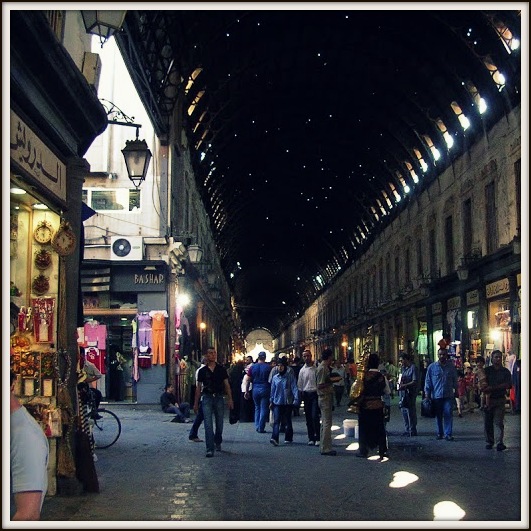
“I miss my country, my village, and my house. I miss my friends, with whom I shared a lot of beautiful moments. I miss the olive trees, and the fields of wheat, and most of all, I miss my love, who was supposed to be my fiancé if it weren’t for the war that the regime declared against its people.”
twenty-one-year-old man from Da‘al, Rif Dar‘a; now living in Irbid, Jordan“The person I miss most is my father, my love, who we buried in Syria (may God punish those who killed him).”
nineteen-year-old woman from Idlib; now living in Irbid, Jordan“I miss our home and my friend Anas. We were raised together. He was martyred last year. I think about the time we had together and the things we used to do. They were the best days.”
twenty-three-year-old Palestinian man from Damascus; now living in Lebanon“The thing I miss most is my mother and father and my sisters and my neighbours who couldn’t leave Syria or chose to stay there. I try to call them whenever I have the chance – on the phone or over the internet.”
thirty-seven-year-old man from Muadhmiyya al-Sham, Rif Dimashq; now living in Irbid, Jordan“What I miss most are my friends and my brother who remained in Syria to fight with the Free Army. “
twenty-one-year-old woman from Damascus; now in Irbid, Jordan
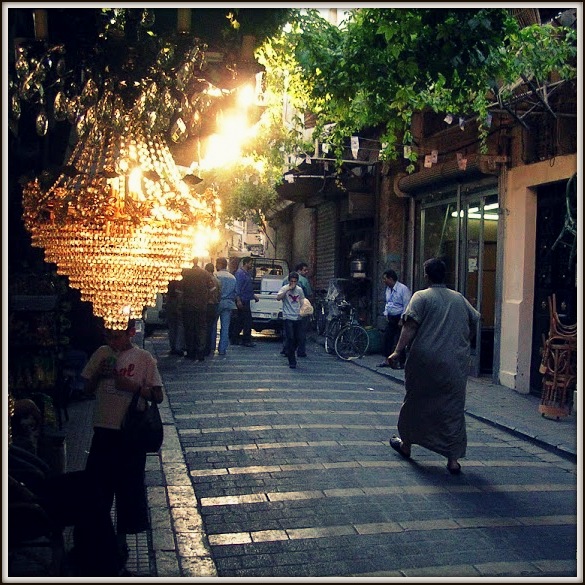
Among those on the move are Palestinian residents of Syria, who numbered over half a million and whose families were displaced in 1948 with the creation of Israel. Caught between a home they know and a homeland they long to be part of, their plight as people with a history of insecurity and multiple displacements complicates their status and ability to find refuge outside of Syria. Jordan refuses to allow them in; and while Lebanon does allow their entry, the high cost of living, and the difficulty of life there as Palestinians are great hardships on the seventy thousand who have fled there. And all refugees from Syria follow many of the same paths of previous migrants and refugees–Palestinians, Iraqis, Kurds, Sudanese–seeking safety, shelter, employment, education, community and stability, across the Arab world and beyond.
“I decided to take my family to Jordan. While we were on the road to Dar‘a, we were stopped at a security checkpoint, and they looked at our IDs. They took my eldest son, and we all started to cry. We begged them to leave him, but they wouldn’t listen to us. They said that his name is among the wanted names. May God curse them! After that, my wife no longer wanted to leave the country. How can she leave without knowing where her son is? And if he comes out, who will he contact? And now it has been 8 months, and we know nothing about him. My wife and my little daughter stayed in Syria with relatives. I brought the rest of my children and we sought refuge in Zaatari Camp. After my brother came to Jordan and rented a house, I left Zaatari and I lived with him. And the one who I miss the most is my little daughter, who never left my side, and would go with me wherever I went. She is the soul of my heart. I dream of returning to Syria. I miss my house the most. I miss the fields that I watered. I miss the birds, which I used to raise on the roof of my house. I miss them all, and especially my house, where I spent all my life, which has been destroyed. I dearly hope that I will rebuild it and live in it for the rest of my life.”
forty-five-year-old man from Harasta, Syria; now living in Irbid, Jordan“My life here is like a that of a handicapped man. I don`t do anything. I stay at home and look for work. But in Syria my situation was different. I worked and had many friends who I visited. I miss Jaramana Camp and the sounds of children playing in the street. I miss my family, especially my big brother who always helped me. I always think about any open possibility for emigration because I hate living here.”
forty-six-year-old Palestinian man from Jaramana Refugee Camp, Rif Dimashq, Syria; now living in Lebanon
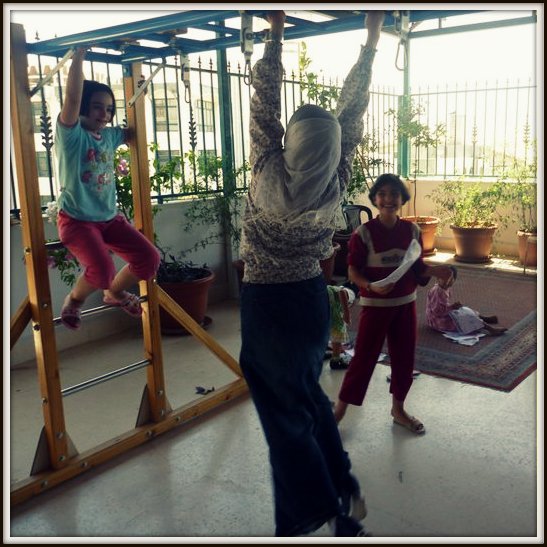
“The thing that I miss the most is my job. I was working as an AC technician and I miss working. The people that I miss the most are my parents because they were the reason for my education, my upbringing, and my becoming a man.”
forty-one-year-old man from Rif Halab; now living in Jordan“I miss my town and I miss my university the most and the classrooms because the days that I loved the most were in the university. All my relatives are here in Jordan and the person that I miss the most is my classmate from the university. He is arrested right now, behind the bars of the regime since a year ago and I don’t know anything about him and I’m worried.”
twenty-three-year-old man from Homs; now living in Amman, Jordan
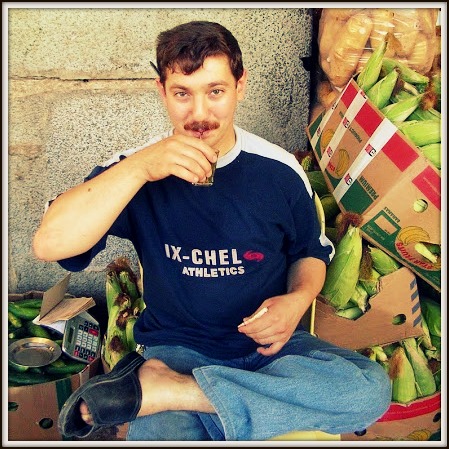
“I miss Syrian falafel. My brother Ibrahim was martyred, and I always think about him. I think about my brother and all the children that were martyred along with him.”
twenty-three-year-old man from (Syria/Palestine) Yarmouk Camp, Damascus; now living in Lebanon“Life here is different from there. I feel more homesick here and it’s tough. Life here is tough and living costs are expensive. The best thing here is security and safety, which is better than there. The thing that I am missing the most is to return to my country and to see my family, my land, and my town. The person that I miss the most is my father because I fled from Syria and I don’t know anything about him.”
thirty-five-year-old from Hama; now living in Jordan
.jpg)
“The thing I miss the most is my mother, but fate has it that she is in one country and I am in another country. She is living in Saudi Arabia. I call her mostly on the Internet. The second person I miss the most is my friend who is now fighting for the FSA. Generally, I speak with him very little because the phone lines are very bad, as is the Internet. When he does have access to the internet, he has little time to use it.”
twenty-four-year-old man from Jasim, Dar‘a; now in Irbid, Jordan
“I miss my things, my university, my art studio, my friends. I miss going out and wandering around Damascus freely, without obstacles. I miss my girlfriend who travelled to Sweden with her family. She was my hope for life. I think about her a lot, about how we could get married and live together. She is Christian too. I am in communication with my friends and relatives on the internet and telephone. This is the only way since I cannot see them.”
twenty-three-year-old man from Damascus, Syria; now living in Beirut, Lebanon
The city of Homs, the third largest city in Syria, has been one of Syria’s commercial, agricultural, and mercantile centers, host to a diverse population, and with a reputation as a pious and conservative place. Some of the early demonstrations as part of the uprising were centered here, and in May 2011 it became an early target of the regime’s military forces. Due to the continued fighting and destruction of homes and infrastructure, thousands have fled from parts of the city. Over fifteen percent of the Syrians in Lebanon are from Homs and the surrounding villages (they are the largest group by origin and number one hundred and sixteen thousand of the over eight hundred and fifty thousand in Lebanon). They are the second largest grouping in Jordan after those fleeing the Dar‘a area of southern Syria. Neighborhoods in Homs have also now become host to those displaced from fighting elsewhere in the country. The United Nations Office for the Coordination of Humanitarian Affairs (OCHA) reported in August 2013 that the city’s al-Wa’er neighborhood is now home to four hundred fifty thousand people of which eighty percent are internally displaced populations.
Those who fled describe what they miss.
“I miss Syria, its air, its water, and I miss breathing the air of Homs. The thing I miss the most is going to the grave of my mom and my dad and praying for them and asking for their blessings and forgiveness.”
forty-one-year-old woman from Homs; now living in Jordan“I miss my son who was slaughtered in front of our eyes and my wife at that time lost her mind looking at her son as the dogs and cats ate his body. And I stand looking at my face each day and thinking of how I can get revenge on the shabeeha and President Bashar. … I apologize for this answer. … I also miss my mother. I miss everything in my country from water to people to the sea to the river to springs.”
thirty-one-year-old man from Homs; now living in Jordan“I miss the breeze in Homs and my family and neighbours. I speak with them but not that much because the connection in Syria is bad. Usually when we talk together, the topic concerns the situation in Syria: when we are going to return, who was martyred, and who got arrested.”
forty-six-year-old woman from Baba Amro, Homs; now living in Jabal al-Qusur, Amman, Jordan
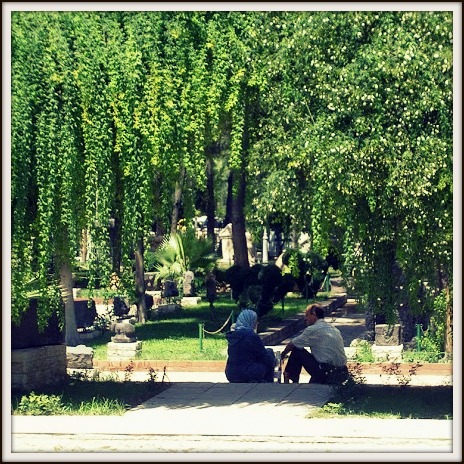
“Syria needs some people to draw hearts on the walls. That is prettier than weapons. I want to draw a heart on my bedroom door, a flower on my neighbor`s door, and on my friend`s door a sun. Here we don`t have a school like ours or friends like mine. I miss my friend George. I don`t know where he is right now. I miss going with him to church. He came with me to the mosque.
My father always speaks to his friends in Homs and checks on the house. We talk about George, his mom, and our Christmas tree. We used to talk about school, girls, and music. I hope Syria goes back to the way things were, without black smoke. I am afraid of tomorrow. I am afraid that I will not able to return to my home.”
seventeen-year-old man from Homs, Syria; now living in Beirut, Lebanon“Here, I miss everything because I don’t have anything except my clothes and blanket. The thing that I miss the most is my house and the one that I miss the most is my Mom because my Dad passed away and she’s alone and she’s very lonely.”
Woman from Bab Darib, Homs, Syria; now living in al-Dirk al-Urduni, Jordan
People’s answers to the question of what they miss the most also connect to memories of places and connected experiences. Many of them know that these places are no longer how they remember them. They maintain, however, their memories, which the violence cannot obliterate. As they articulate their answers to our question, their attachment is expressed not only to Syria and to places there, but also to the people who shared this attachment–the friends, relatives and neighbors who make up these memories, some of whom are gone forever.
“I miss Syria, and Damascus very much. I miss the markets of Damascus and the Qassiyun Mountain, and I miss walking in al-Hamadiyya street and in every other street in Damascus. Also, I miss reading the statement on the sign that says ‘Welcome to Syria’. And I hope, when I return, to see this statement again. I miss my aunt the most because she is my age and we were just like friends and sisters [...] And of course, I miss all the people that I know. The thing that I think about the most is to return to Syria and see it free.”
twenty-year-old woman from Midan, Damascus; now living in Jordan
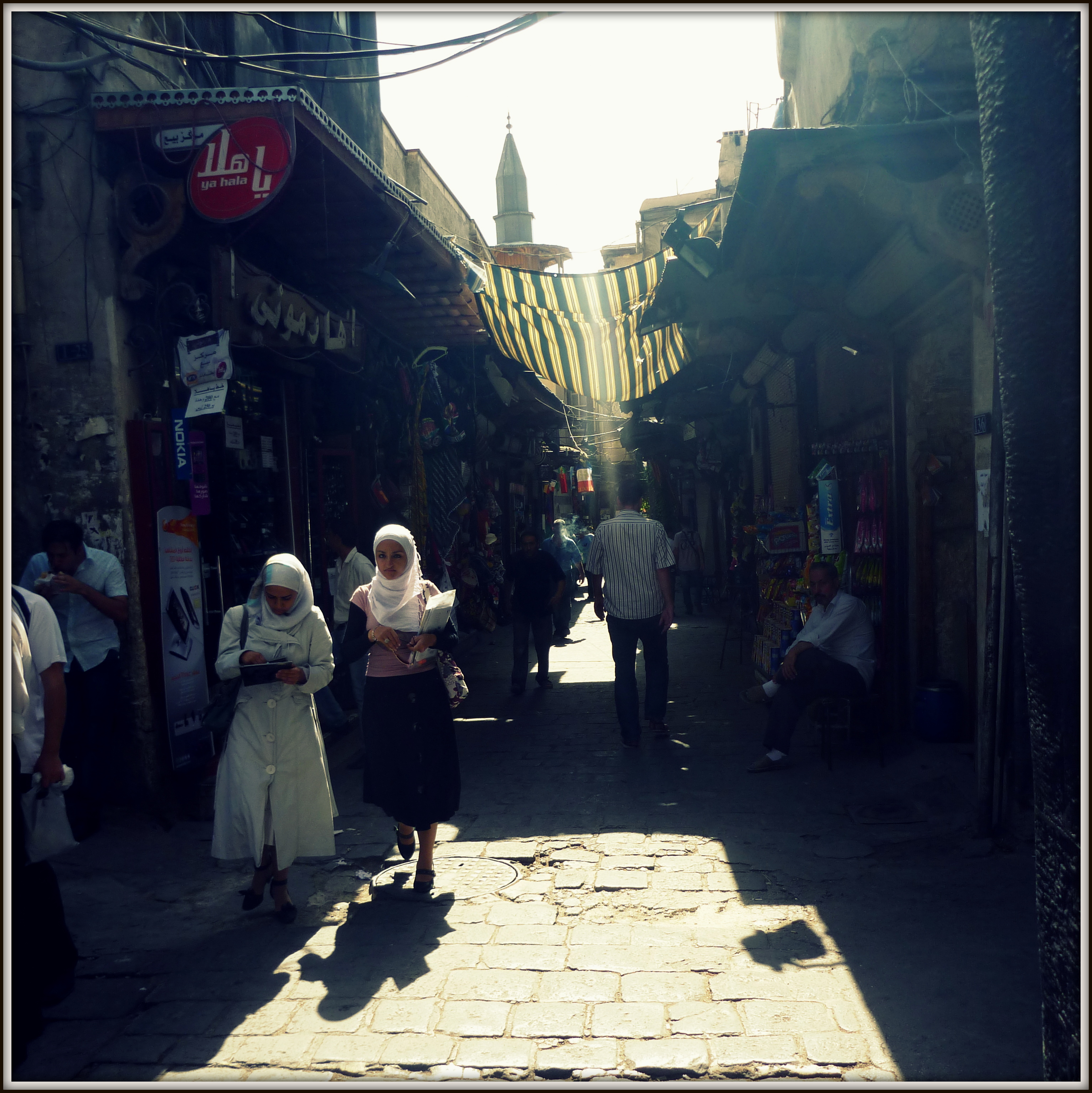
“The thing I miss most is sitting with my friends and family along the edge of Wadi Yarmouk in the evening. And I truly miss my mother’s cooking. My mother is the person I miss most. The thing I think about the most is how and when I can return to Syria. I think about how they can overthrow this regime. “
twenty-five-year-old man from Dar‘a; now living in Irbid, Jordan“The thing I miss most is the Suq al-Hamidiya. I miss walking the streets of Damascus. And the person I miss most is a person in my heart whom I love. I also miss my sister’s young children and my friends. I miss the younger ones more than the older ones.”
thirty-year-old woman from Damascus; now in Irbid, Jordan“I miss my area and the al-Jazeera region, the trees and the harvest season. The person I miss most is my father because he expanded my intellect and he taught me about the matters of life and he would always support me.”
twenty-five-year-old man from Qamashli, northeastern Syria; now living in Irbid, Jordan
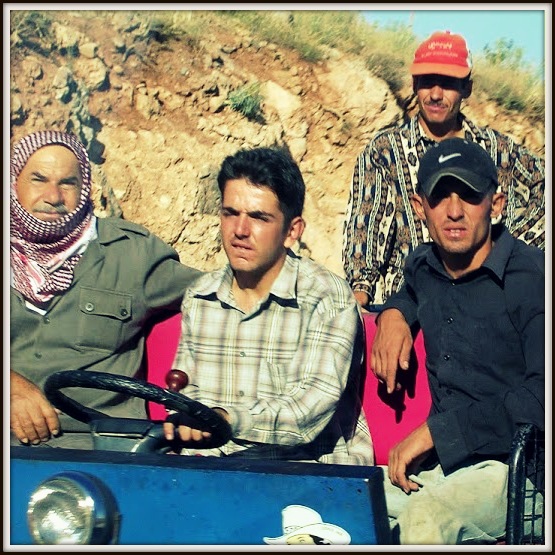
“I miss sitting and working in an art studio. And I miss my friend who was with me at the university. We kept in touch even after we got married. I don`t know what has happened to her.”
forty-year-old Palestinian woman from Yarmouk Camp, Damascus, Syria; now living in Lebanon“I miss, I don’t know, I miss my family, my first husband [martyred at the outset of the revolution], and my second husband [who was just killed recently]. I miss my students, my school, my neighborhood, my street, and my house. I miss everything. I miss my mother`s hugs. I speak with her from time to time on the mobile phone or land-line.”
thirty-two-year-old Palestinian woman from Hajira Camp, Damascus, Syria; now living in Burj al-Barajneh Camp, Beirut, Lebanon
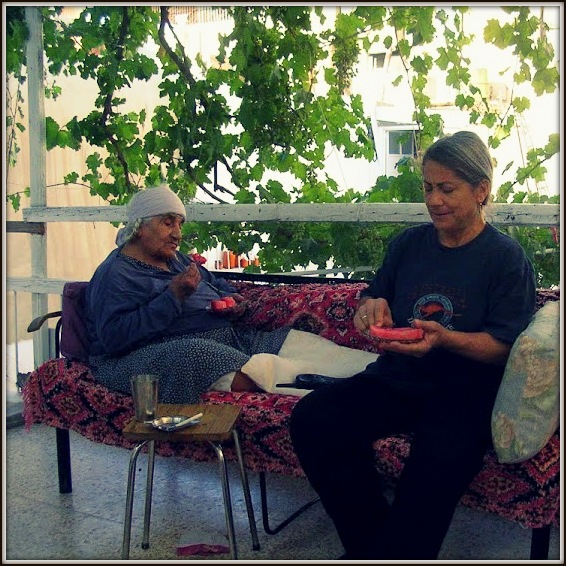
Syrians living in Jordan repeatedly mentioned in the interviews the sense of safety and security they felt living in Jordan, for which they were grateful. In Lebanon, the refugees live all over the country, many in lean-tos and empty or unfinished building sites or in the Palestinian refugee camps. They have few services–no water, electricity, or toilets–and survive by working and with the generosity of their Lebanese hosts and international donors. As time passes, refugees become poorer, frictions develop with their hosts, and connections grow with local or other refugee communities, some of whom have lived through wars themselves and continue to endure exile and displacement.
“I have gotten to know some friends whose situations are similar to mine, and our friendship has strengthened quickly. Despite this, I still miss my friends in Syria, as every one of them is still in Syria now. What I miss most from my life in Syria are my friends who were martyred. Some of them were shot, and some of them were martyred while being tortured in prison. My life is going to be difficult without them, because they were a basic and essential part of my life; they were more than brothers to me. When we return, I am going to move from one feeling of emptiness to another. There isn’t anything I can do to bring them back.”
twenty-one-year-old man from Dar`a; now living in Irbid, Jordan“I miss everything, to return to my town and smell the air there. That our lives were comfortable there, at least we could turn on the faucet and drink. My siblings are there, and I`m scared to lose them.”
twenty-seven-year-old Palestinian woman from Idlib, northwestern Syria; now living in Burj al-Barajneh Camp, Beirut, Lebanon
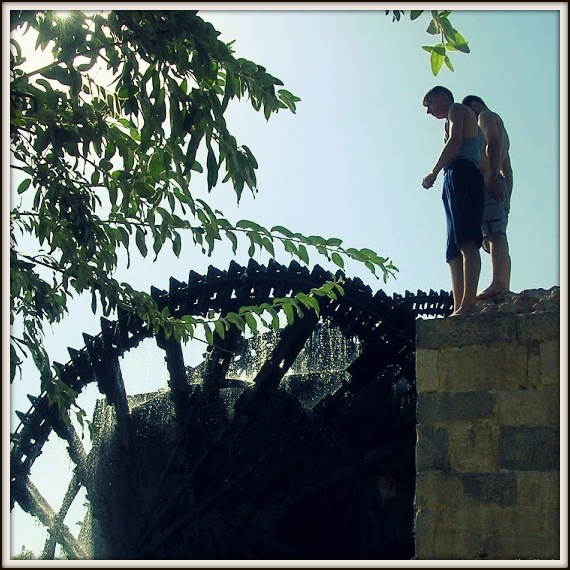
“There are no similarities between my life here and in Syria. There’s a big difference. In Syria, nothing is boring, but here everything is boring, at home or at work. I miss my family and my friends that I used to talk to a lot. All of us every week would gather at my sister’s house and eat and talk together.”
thirty-three-year-old man from Syria; now living in al-Hashimi al-Shamali, Jordan
The desire to return to Syria, with the safety and stability that would allow them to return to their lives, was expressed by almost all of the people in the over one hundred interviews that we conducted (June 2013). What makes people yearn to return? What makes them want to go back? Their responses to the question of what they miss most offer concrete elements of what defines them and how they think of themselves and Syria: a dignified life; their family, home, and job; the natural world around them–land, air, and plants; their accomplishments; their friends, neighbors, and companions. Their responses reveal not only what is missing in their current situations, but also what had been meaningful to them in Syria. The interviews also revealed many of the difficulties they faced before the fighting–corruption and bribery stood out.
“I miss my family’s house in Jarmana. I miss my father since I was the one taking care of him. I spent a lot of time with him. I think about if he is able to care for his needs, and how his health is, since I was helping him before.”
forty-three-year-old Palestinian woman from Hussayniyya Camp, Damascus; now living in Lebanon“[What I miss most about Syria is] the camp, my brother, and my friends. [The people I miss most are] my brother and my neighbor Umm Eyad. Her son was martyred and she does not have anyone to stay with. My brother is banned from traveling. [I think about] return. I feel that my life is back there, my environment, and it is safer.”
forty-three-year-old Palestinian woman from Yarmouk Camp, Damascus, Syria; now living in Lebanon
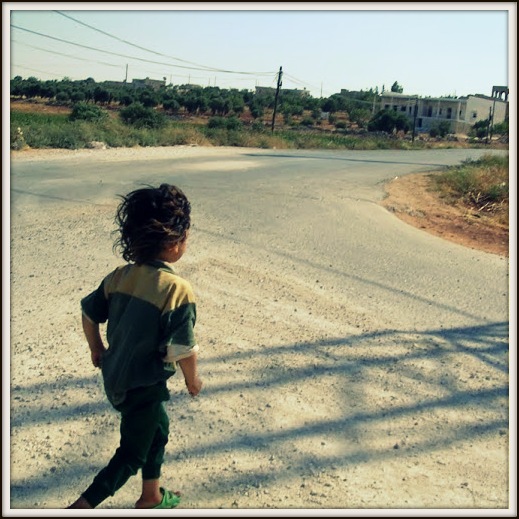
“I used to visit my relatives, my friends, and my children and my grandchildren. They all gathered around me, and I miss this gathering a lot. I ask God to bring us together again. I only want to die on the soil of my homeland. I miss my house, which I built. I worked hard to build it. I miss my farm, which I farmed with the sweat of my forehead and the hard work of my arms. Everything in my country has meaning and memory in my heart.”
fifty-seven-year-old man from Dar‘a; now living in Irbid, Jordan